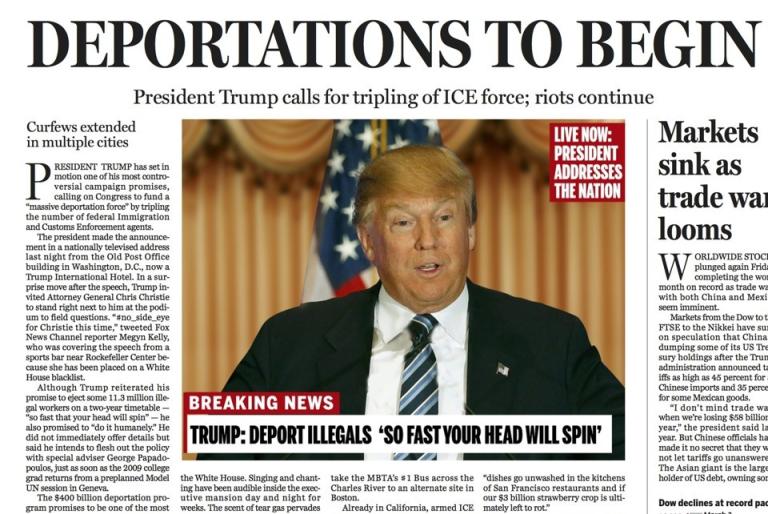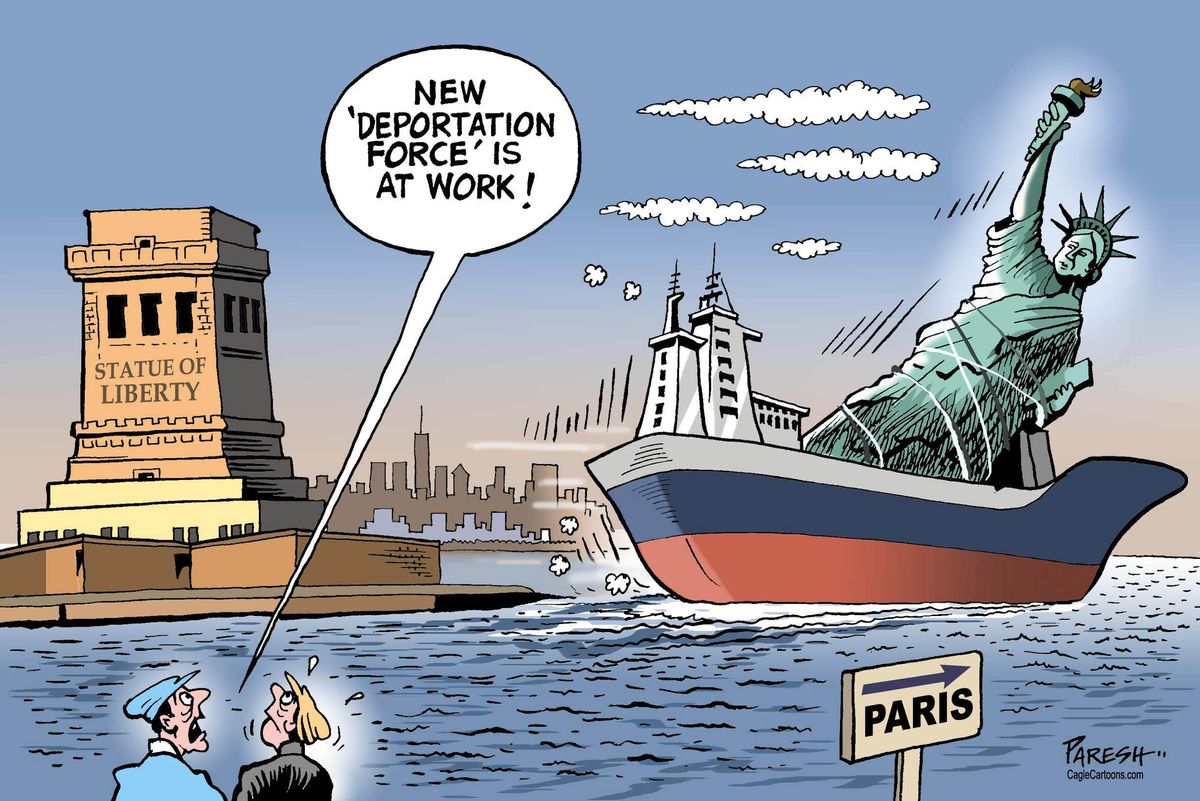The Real Cost of Trump’s Deportation Scheme
Aside from inflicting historic human suffering, Trump’s mass deportation scheme would cost the US economy almost a trillion dollars.
Impunity
During Donald Trump’s presidency which ended in January 2021, his administration enacted a Muslim travel ban and a family separation policy that’s still being felt today among migrant families that have yet to be reunited.
It was a far cry from his promise to deport 11 million undocumented immigrants. Trump deported less than a million migrants, far fewer than the number President Obama deported during his first term in office.
This time around, Trump intends to make good on his promise. He and his allies at Project 2025 have had four years to regroup, with plans to loosen the institutional guardrails that formed the opposition to their deportation scheme. There’s talk of Trump invoking the Alien Enemies Act of 1798 which would empower the president to jail his perceived enemies without due process (lawsuits would surely follow).
Trump’s demonization of immigrants is the central plank of his campaign for president. If he wins, Trump would regard that as a mandate to mass deport with impunity.
Tallying the Costs
To implement Trump’s plan, there are direct costs: staggering increases in infrastructure and personnel to identify, capture, imprison, and deport 11 million undocumented immigrants. There are also indirect costs to the US economy if 11 million immigrants are no longer a part of it.
Direct Costs
According to the American Immigration Council, an immigrant advocacy group, Trump’s deportation plan “would require hundreds of new detention facilities [and courtrooms] and hundreds of thousands of new immigration agents, judges, and staff.” To put detaining 11 million people in perspective, consider that the entire US prison population in 2022 (federal, state, and local) numbered 1.9 million.
On top of federal costs, Trump has said repeatedly that he would like to deploy local law enforcement and each state’s National Guard.
Indirect Costs to the US Economy
Undocumented immigrants perform the hard work in industries such as construction (14 percent undocumented), agriculture, hospitality and restaurants, and home health care. There’s already a severe labor shortage in this county. Removing undocumented immigrants would lead to a shortage of low-wage workers and cause businesses in these sectors to scale back or close entirely. As these industries suffer, thousands of American-born workers would lose their jobs.
Undocumented Immigrants pay $22.7 billion annually in Social Security taxes, even though they are not eligible for benefits.
Undocumented workers contribute to the US economy in these ways:
- They pay $22.7 billion annually in Social Security taxes, even though they are not eligible for benefits; $5.1 billion in Medicare tax;
- In 2022 alone, undocumented households paid $46.8 billion in federal taxes and $29.3 billion in state and local taxes;
- Undocumented entrepreneurs generated $27.1 billion in business income in 2022.
Mass deportations would reduce annual gross domestic product (GDP) by 4.2 percent, or at the same rate this country suffered during the Great Recession of 2007-2009.
The Human Cost
According to the Pew Research Center, 66 percent of undocumented immigrants have lived in the US for at least a decade. They have children who are US citizens and know only this country as their home. Mass deportations would uproot people from their homes and communities after years or decades of building a life for themselves and their families. They would face an uncertain future and possible separation from their loved ones.
Shared Misery
The misery would be shared by all people, not just the undocumented. You could work at a restaurant or on a construction site that closes due to a labor shortage. You could live in a household in which a loved one is forced to leave, never to return. You could live in proximity to a new detention facility where grim episodes of human bondage are in plain sight. You could be rudely awakened by an early morning raid of an immigrant’s home in your neighborhood.
Coda
Trump’s presidential campaign reveals his dark vision for America, where law enforcement is ever-present, food rots in the fields, children lose their moms and dads, Americans are pitted against one another, and prisons become a prominent part of the American landscape.
None for me, thanks.





















































































































